If Russia uses nuclear weapons in Ukraine, an aggressive response by US and allies gets bipartisan support, a survey shows
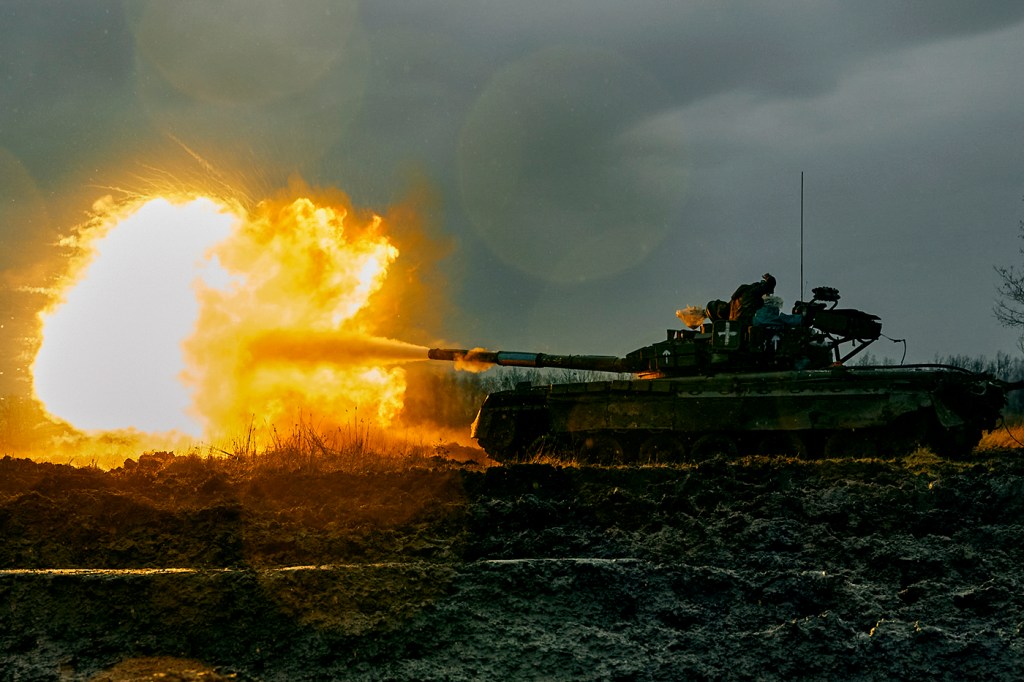
Americans maintain a high level of concern over the war in Ukraine and are likely to support an aggressive response by the U.S. and its allies if Russia were to use a nuclear weapon there, according to a report published by the Covid States Project that includes a team of researchers from Northeastern.
The recent release of the report comes at a time when the U.S. is preparing to send $4.5 billion in direct budgetary support to the government of Ukraine through the World Bank by the end of 2022. The Biden administration has also requested that Congress allocate almost $38 billion in emergency aid to Ukraine in 2023.
The report titled American Attitudes Towards Russia’s Invasion Of Ukraine published last week is based on a survey of 26,161 individuals conducted between Oct. 6 and Nov. 9 across all 50 states and the District of Columbia. The Covid States Project, a collaboration between Northeastern University, Harvard University, Rutgers University and Northwestern University, organized the survey.
The researchers asked the participants two sets of questions:
- How concerned they were about Russia’s invasion of Ukraine
- How supportive they would be of a range of policy options if Russia used a nuclear weapon in Ukraine.

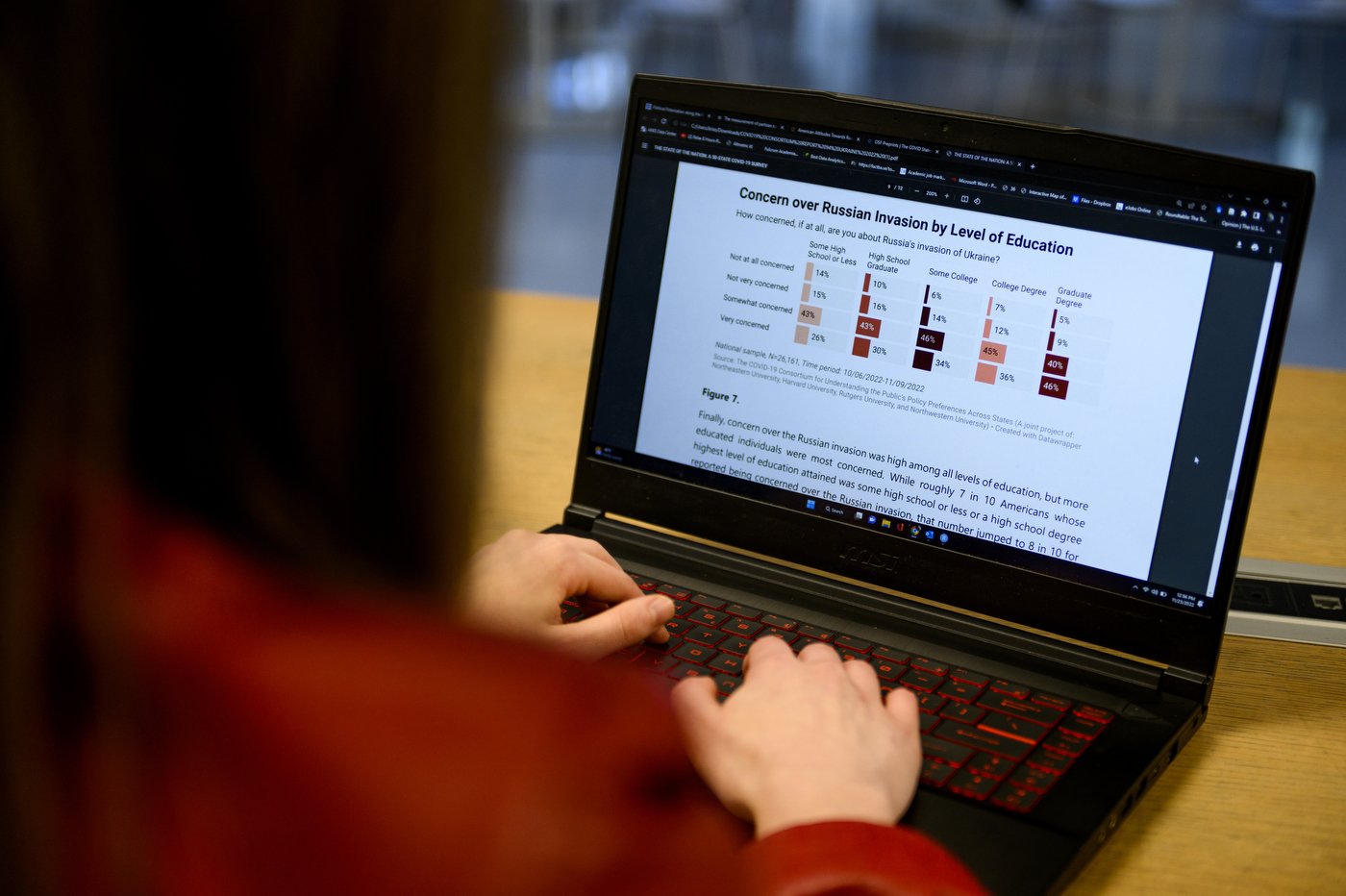
Nearly 8 in 10 respondents reported being either somewhat or very concerned, with one third of Americans being very concerned about the Russian invasion of Ukraine.
What surprised researchers, however, was not that the majority of Americans were pretty concerned about the war in Ukraine, says Kristin Lunz Trujillo, a postdoctoral researcher at the Covid States Project and Northeastern’s Network Science Institute, but that the significant concern sustained over a long time. The war in Ukraine had been already going on for seven months at the time the survey was conducted.
“A lot of times, people will hear something in the news and then public opinion will react, but it will subside over time. In this case, it seems [to be] pretty consistent even a long time after the actual invasion started,” Lunz Trujillo says.
The survey also revealed broad bipartisan support for an aggressive U.S. response, in case Russia deploys a nuclear weapon in Ukraine, even if it meant more direct NATO or American involvement.
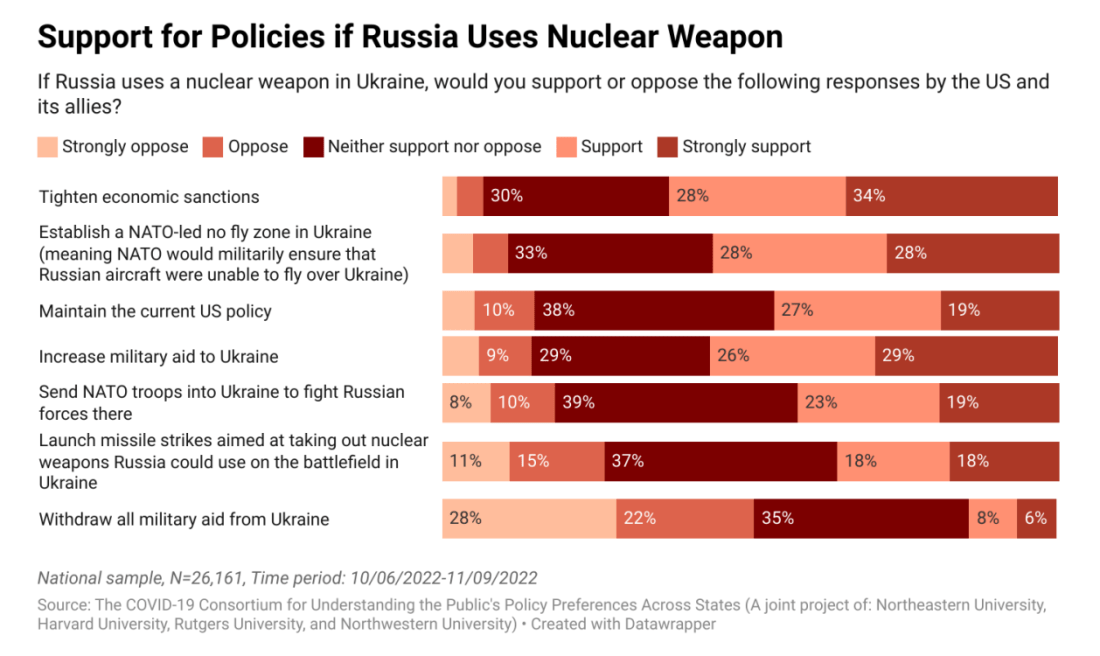
In the event of a Russian nuclear attack, the respondents said they would support tightening economic sanctions (62%), increasing military aid to Ukraine (55%) and creation of a NATO-led no-fly zone over Ukraine (56%). Fewer respondents said they would be inclined to support sending NATO troops into Ukraine to fight against Russian forces (42%) or launching missile strikes aimed at taking out nuclear weapons that Russia could use on the battlefield in Ukraine (36%).
About a third of individuals surveyed said they neither supported nor opposed the itemized possible U.S. responses to a hypothetical Russia’s nuclear attack.
The survey indicated that people who said they were Democrats (67%) were significantly more likely than people who said they were Republicans (55%) to support increased military aid to Ukraine.
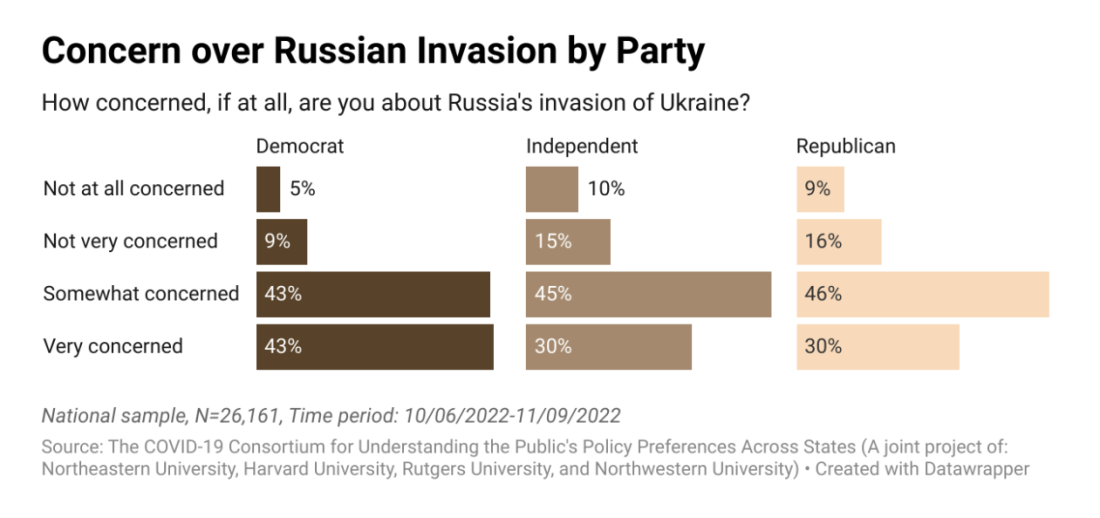
The partisan split in terms of increasing military aid to Ukraine might reflect economic concerns that Republicans have, including high inflation, Lunz Trujillo says, as well as potentially an ideological stance among the Republicans to be less involved in foreign affairs.
“A lot of times, the Republican politicians are more concerned about the government spending, trying to lower that in particular, and that might even include things like aid to Ukraine, whether that be the military aid or the aid for civilians,” she says.
Democrats were also more likely to support sending NATO troops into Ukraine to fight Russian forces (Democrats 51%, Republicans 44%).
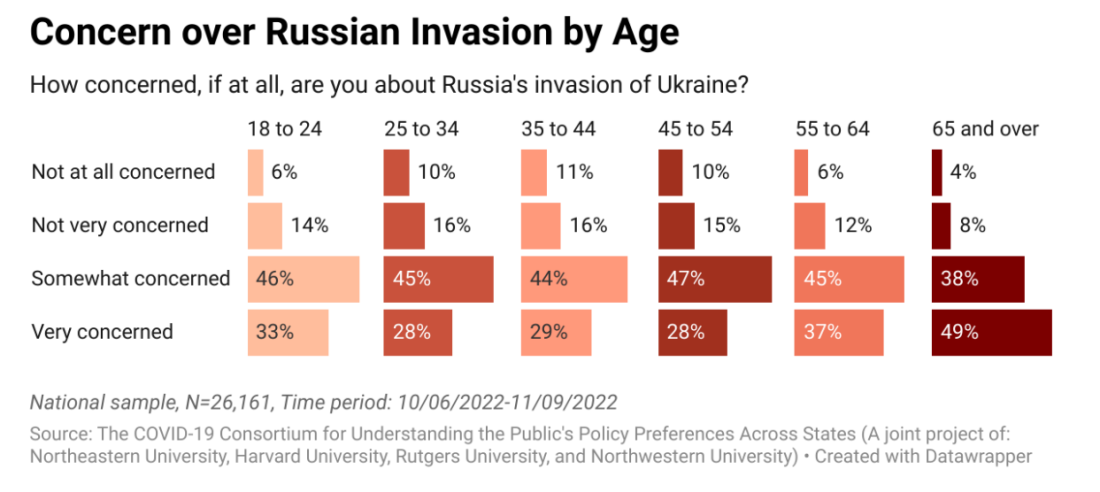
Concern over the Russia-Ukraine war is high—above 70%—across all age groups for adults of 18 years of age and older, the report shows, but it was even higher among those 55 and older. Almost 9 in 10 Americans who are 65 years old or older responded that they were concerned about the war.
“People who are older are more concerned about the Russian invasion because they grew up in and were socialized during the Cold War and the use of nuclear weapons was a persistent threat [then],” Lunz Trujillo says.
At 86% of the respondents, Democrats reported a considerably higher concern about Russia’s invasion of Ukraine than Republicans (76%) or independents (75%). Lunz Trujillo says that might be because a small contingent of the Republican Party seemed less concerned or downplayed Russia’s invasion of Ukraine as an issue.
Women (82%) indicated a higher concern about the Russia-Ukraine war than men (75%). This gap was higher for Republican women—83%—as opposed to 71% of Republican men.
The Covid States Project launched in March 2020 and examines public’s policy preferences across the U.S.
For media inquiries, please contact media@northeastern.edu.






